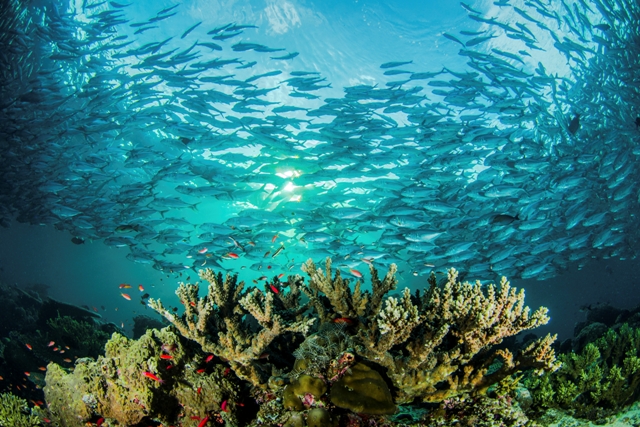 Commonwealth leaders set up the final props for Climate Change on the world stage in Paris.
Commonwealth leaders set up the final props for Climate Change on the world stage in Paris.
Round Table’s Website Editor Debbie Ransome looks at how Commonwealth leaders set up their props for Paris.
The stage has been set for global leaders to meet in Paris and the Commonwealth Summit in Malta provided all the props, lines and rehearsal opportunities for COP21.
A move to mobilise private finance for sustainable development work and a new Commonwealth Climate Finance Access Hub were the two major outcomes from the Commonwealth Summit in Malta.
The Commonwealth Leaders Climate Action Statement, issued on 28 November, said that the Access Hub will help strengthen access to existing and new climate finance funds.
Secretary-General Kamalesh Sharma explained at a media onference that the idea behind the hub was to allow countries to “know the number to call to access climate change funds”.
The Hub will be based in Mauritius and Mr Sharma said that it will provide a “virtual network”.
Throughout the talks leading up to Saturday’s action plan, the Secretary-General has constantly placed emphasis on the need for rich large countries to provide more than commitments to lower their carbon emissions but to also reward smaller and more vulnerable countries with debt relief and debt swap for their own resilience projects.
He had said ahead of the Summit in an op-ed that: ‘Global warming is emerging as one of the greatest injustices of our time.
‘Small island states in the Pacific, for example, have done little to cause climate change, yet may soon disappear into a rising ocean. Barely above sea level, their people could soon pay the ultimate price and be displaced from their homelands’.
“Near unanimity”
For the observant, the final statement did reflect the fact that Commonwealth leaders could not get everyone to learn the same lines ahead of the Paris performance.
The leaders’ statement on climate action stated at the very end, in fine print, that ‘there were reservations expressed on paragraphs 6, 7 and 8 by one country’.
The country was not named.
The obviously lively debate that had taken place behind the closed doors of the special session on climate change were also reflected in the comments made by leaders at the closing news conference on Sunday, 29 November.
Host Prime Minister Muscat referred to Commonwealth meetings not always being about shaking hands.
“This is what the Commonwealth is all about,” he told reporters.
“It’s about being honest on issues.”
Prime Minister Muscat described the agreement as “convergence” and “near unanimity”.
Nauru’s leader Baron Waqa told journalists that, while the Paris attacks and extremism were important agenda issues: “We are not to be hijacked by what is happening…climate change will affect the lives of everyone…climate change is THE most important issue of our generation.”
Another leader at the final media briefing, Barbados’s Freundel Stuart, said that Caribbean and Pacific countries could not afford the luxury of the argument on climate change.
“When the planet speaks, we have no choice but to listen,” Prime Minister Stuart said.
He added that the deliberations in Paris had to end in a clear understanding that there must be change.
He added: “it means all of us…climate change is everybody’s business.”
On stage
The unveiling of the Commonwealth initiatives came on the eve of COP21 with many of the leaders immediately flying on from Malta to Paris for the global command performance on climate change.
To bring the spotlight from the Paris event, the host President Francois Hollande joined the leaders in Malta as did the UN Secretary-General Ban Ki-Moon.
The UN head described the Commonwealth as “quite unique” and said that he hoped for an “ambitious” agreement in Paris.
“We are going to make this happen,” he told journalists in Malta.
Pressure to make the difference had been building for weeks ahead of the Commonwealth Meeting and even the heir to the British throne joined the line-up for the Paris stage.
Prince Charles unveiled the Green Finance Facility in Malta which he said would provide cost efficient and effective guarantees and credit enhancement for green projects that struggle to access finance from sovereign wealth and pension fund investment.
Greening Canada
For those who had been Canada-spotting as the new leader on the block, Justin Trudeau, arrived, there was the predicted and welcomed revival of interest in Commonwealth affairs in the form of a Canadian financial pledge.
‘Canada is back and ready to play its part in combatting climate change,’ Prime Minister Trudeau said in a statement as his country pledged $2.65bn.
The money will be spread across five years to help developing countries cope with climate change.
Other hefty pledges came from the UK ($31.5m for disaster management and $8.2m for ocean-based economy) and Australia committed $1m.
So the stage is set – Commonwealth leaders have set up the props for the global climate change show in Paris.
Host Prime Minister Joseph Muscat told his fellow leaders that the Commonwealth had to be at the forefront of the quest of saving our planet.
“If done smartly, all this will make not only environmental sense, but it will also make good business sense,” he said.
Beyond Paris, the issue is set to remain at the top of the Commonwealth agenda as SG-designate Patricia Scotland told her first news conference that climate change is “a matter of vital importance”.



